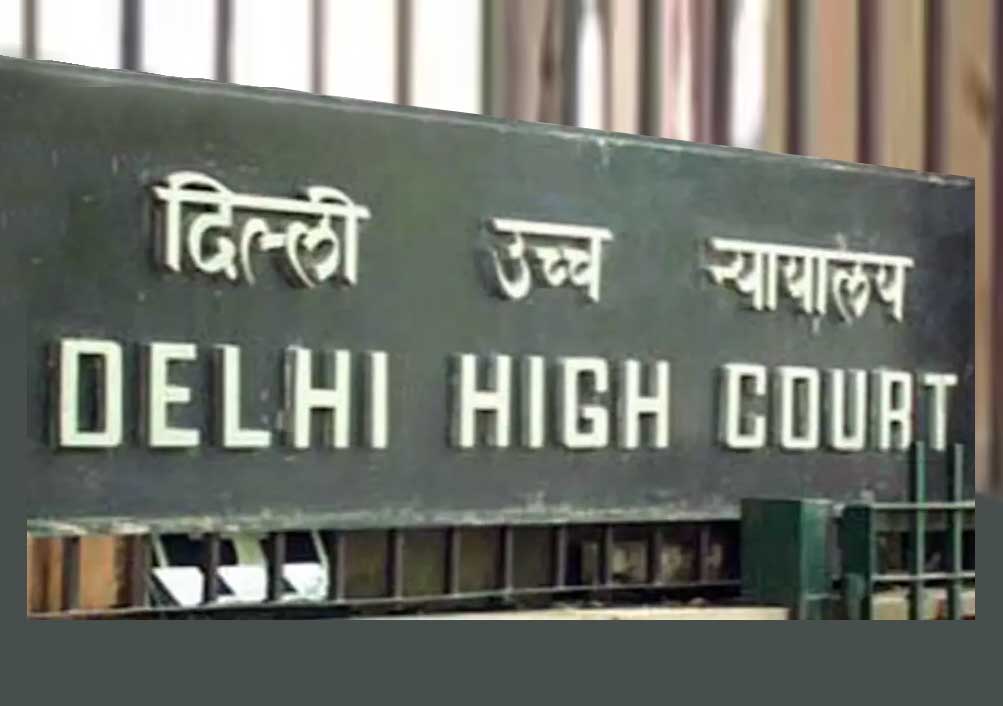IN WP (C) 1389 OF 2016 - DEL HC -Petitioner’s cavalier attitude, casual behaviour and perfunctory explanation for delay in filing Statutory Appeal reflects complete disregard towards his Institution: Supreme Court upholds CISF Constable’s punishment of compulsory retirement for making inappropriate phone call to female constable while under the influence of alcohol
Justice Suresh Kumar Kait and Justice Neena Bansal Krishna [19.07.2023]

Read Order: Mukesh Malik v. Union Of India
Simran Singh
New Delhi, July 20, 2023: The Delhi High Court has upheld the compulsory retirement of a constable in the Central Industrial Security Force (CISF) after finding that he did not provide any reasonable explanation for the delay in filing his appeal against the said decision of the inquiry committee.
In the matter at hand, the petitioner had filed a petition seeking to set aside his compulsory retirement from service as a constable in CISF. He was accused of making an inappropriate phone call to a female constable while under the influence of alcohol in January 2011. An inquiry committee found the charges against the petitioner to be proven and recommended compulsory retirement as punishment. The petitioner appealed the decision which was dismissed as time barred. He filed a revision petition and made representations which were also dismissed.
The petitioner argued that there was insufficient evidence to prove the charges against him. However, the Court found that the petitioner failed to provide any reasonable explanation for the delay in filing his appeal who showed a ‘cavalier attitude’ and ‘complete disregard’ by not filing the appeal on time.
The Bench referred to Section 8 of Central Industrial Security Force Act, 1968 (CISF Act)which provided for the dismissal, removal etc. of members of the Force by any supervisory officer. Rule 34 of the Central Industrial Security Force Rules, 2001 (CISF Rules) defined dismissal from service and compulsory retirement as major penalty. Section 9 of CISF Act provided for Appeal by any member of the Force aggrieved by an order of dismissal, removal etc. made under Section 8 against him, “which may be preferred within 30 days from the date on which the Order is communicated to him”, and the decision of the Appellate Authority shall be final. However, the proviso provides that if the Authority was satisfied that the appellant was prevented by sufficient cause from filing the Appeal in time, the Appeal may be entertained beyond the period of 30 days.
The Court noted that the petitioner had preferred the Appeal before the Director General, CISF, Force HQs. New Delhi after about 93 days. The petitioner was told by the Director General, CISF, Force HQs. New Delhi to file it before the Competent Authority at Hyderabad and the Appeal was returned to the petitioner. The petitioner then filed the Appeal before the Deputy Inspector General, CISF, DAE Hqs. Hyderabad on 30.04.2012 i.e., after 111 days. The Statutory Appeal was dismissed on 19.06.2012 by the Appellate Authority on the ground of limitation without going into the merits. The petitioner had preferred the Appeal and thereafter Revision with a total delay of 174 days after excluding the limitation period of 30 days which is permissible under the CISF Act, 1968 for filing the Appeal. Proviso to Section 9(1) of the Act did give a discretion to entertain the Appeal beyond the period of limitation but only on disclosing sufficient cause. Neither in the petition nor in the affidavit any explanation was given to justify the delay of about 63 days beyond the period of limitation in the first instance in New Delhi and thereafter, a delay of about 111 days in filing the Statutory Appeal before the Deputy Inspector General, CISF, DAE Hqs. Hyderabad.
“The conduct of the petitioner reflects that he was in no hurry to file the Appeal before Competent Authority, Hyderabad. The petitioner, despite the opportunity being granted, even in the present petition, has not able to give any cogent explanation for delay of filing the Statutory Appeal except “inadvertence” which is no explanation at all. The cavalier attitude, casual behaviour and perfunctory explanation for delay reflects complete disregard of the petitioner towards his Institution as well as towards himself. The question of considering the merits of Dismissal Order dated 05.10.2011 could have arisen only if the petitioner was able to cross the first hurdle of limitation which he has miserably failed to do so, at every stage, viz. Appeal, Revision and even before this Court. The dismissal of the Appeal on the ground of limitation, as there was an inordinate delay, without any cogent reason in filing the Appeal, can therefore not be faulted. ”
The Court accordingly dismissed the petition and upheld his compulsory retirement and found no reason to interfere with the decision given his failure to file a timely appeal.
Sign up for our weekly newsletter to stay up to date on our product, events featured blog, special offer and all of the exciting things that take place here at Legitquest.




Add a Comment